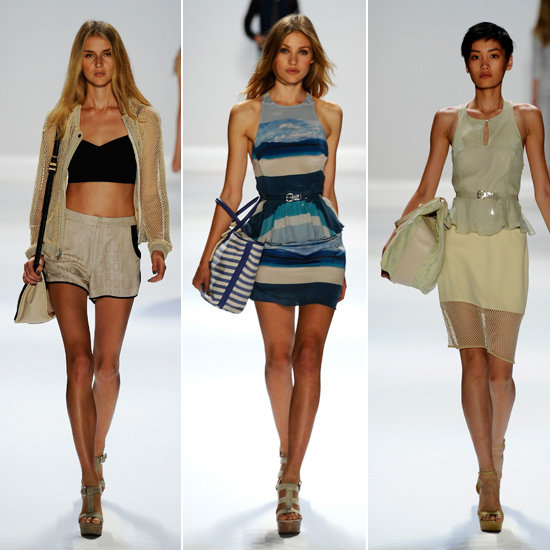It’s Fashion Week and the results of the 2013 Brand Keys Fashion Brand Index are in. And the survey says. . . fashion brand importance is up again.
Sure, consumers need to like what they’re going to wear, so design and style is important. But when it comes to establishing a real emotional connection with the customer, you can’t beat brand. In the past decade, brand importance has increased tenfold for fashion consumers. Currently 30% of 7,500 consumers polled feel brand is more/much more important in the engagement (and purchase) process.
And while it’s true consumers are still being cautious about spending, that very reality is what’s driving them into the arms of true brands. The more considered a purchase, the greater the role a strong brand plays in the decision-making process, especially true in the very personal category of fashion, where the brand is the very source for emotional engagement. And – as the past five years have proven in the aisles of department and apparel specialty stores – brand can act as a surrogate for added-value engendering positive behavior.
The annual survey of 7,500 respondents, 50:50 Men/Women, aged 21 to 65, represents nearly 20% of the Customer Loyalty Engagement Index participants who are first asked to indicate the importance to them personally of fashion brands, then, on an unaided basis, are asked which brands are more important to them. This year’s Fashion Brand Index findings demonstrate the continuing shared space between luxury and leisure apparel brands, with fashion brands like Armani, Burberry, and YSL all moving up from an already respectable showing in the top-15, along with leisure brands like Nike, J. Crew, and Levis.
The iconic Ralph Lauren has always been our “gold standard” when it came to fashion brands, but this year it seems as if leisure brands have taken on greater import for men, and more haute couture brands for women, proving that done correctly, emotional brand engagement can be a powerful approach to meaningfully connect with consumers, and not the purview of only one or two brands. Ralph Lauren/Polo moved from last year’s #1 spot among women to #6 this year just behind Chanel, Armani, Favorite Sports Team, YSL and Burberry, but only 1 spot down on the men’s list, from #3 to #4, with Favorite Sports Team, Nike, and Armani in the 1, 2, and 3 spots respectively.
Our Fashion 15 are the top-15 fashion brands ranked on the basis of the number of unaided brand mentions (%) received from consumers.
- Favorite Sports Team 39%
- Armani 38%
- Nike 35%
- Ralph Lauren/Polo 34%
- Burberry 30%
- J. Crew 29%
- Calvin Klein 27%
- Chanel 25%
- Banana Republic/YSL 23%
- Levi’s 22%
- Hilfiger 21%
- Coach 20%
- Tom Ford/Dior 19%
- Victoria’s Secret/GAP 15%
- Brooks Brothers/Tory Burch/Kate Spade 14%
The rising importance of fashion brands generally, and Fashion 15 brands specifically, indicates that value – or more specifically, the perception of value-via-brand – is of much greater import to consumers, and ultimately, to the success of fashion brands. So it’s not surprising that consumers are looking to the brands – and the emotional engagement brands can create – to make a difference, to meet their expectations, and to delight. In the context of fashion, value isn’t just what consumers’ dollars buy, it’s how fashion fits consumers’ lifestyle, self-perception, and expectations, and how well the brand actually engages.
The retail marketplace already overflows with an excess of me-too products and designs, congruous distribution, and bargain basement pricing when things slow down. Given that reality, how many 100%-cotton black t-shirts do fashion brands think a consumer will buy, and why would they pay $75 when they could pay $15? The answer to those questions ultimately comes down to brand.
Connect with Robert on LinkedIn.
Find out more about what makes customer loyalty happen and how Brand Keys metrics is able to predict future consumer behavior: brandkeys.com. Visit our YouTube channel to learn more about Brand Keys methodology, applications and case studies.


